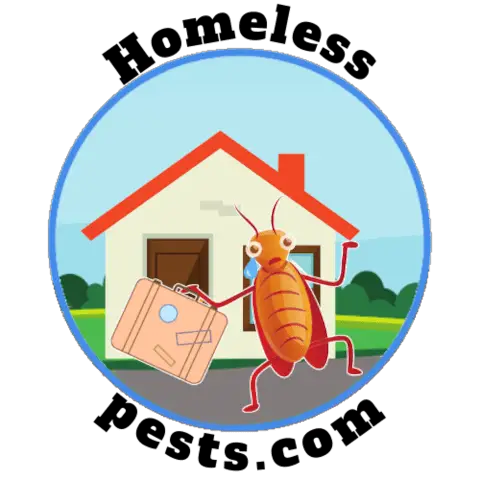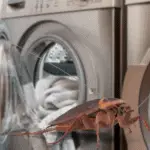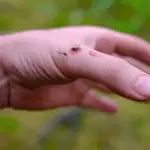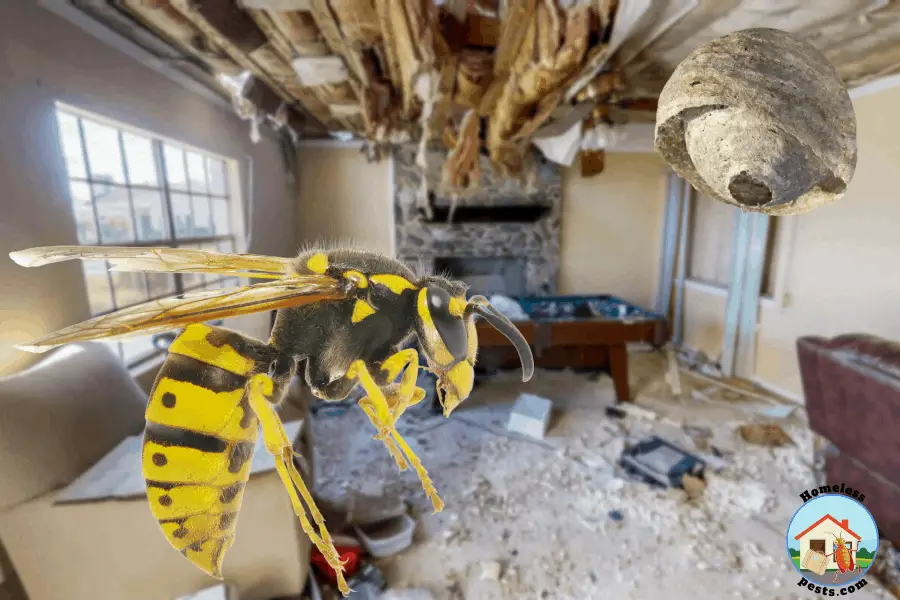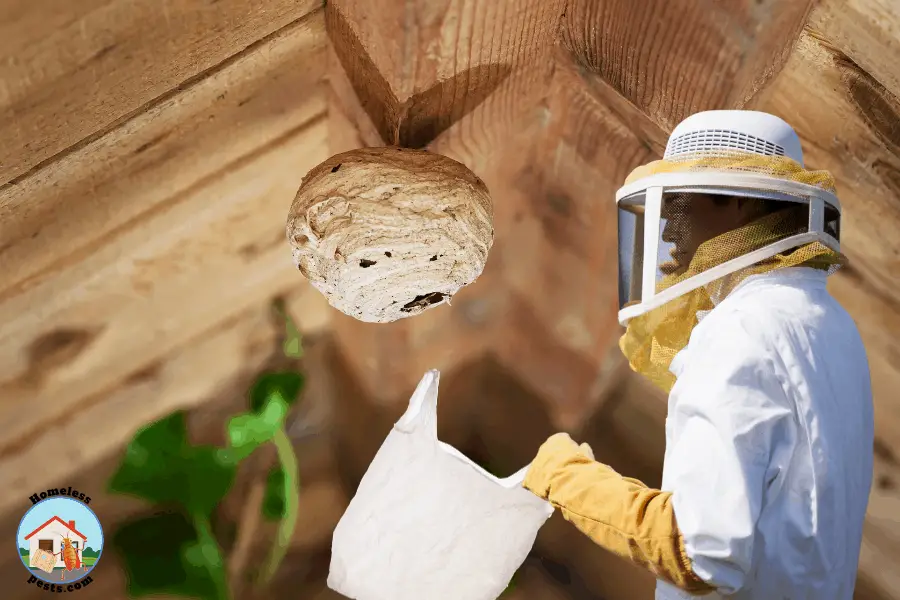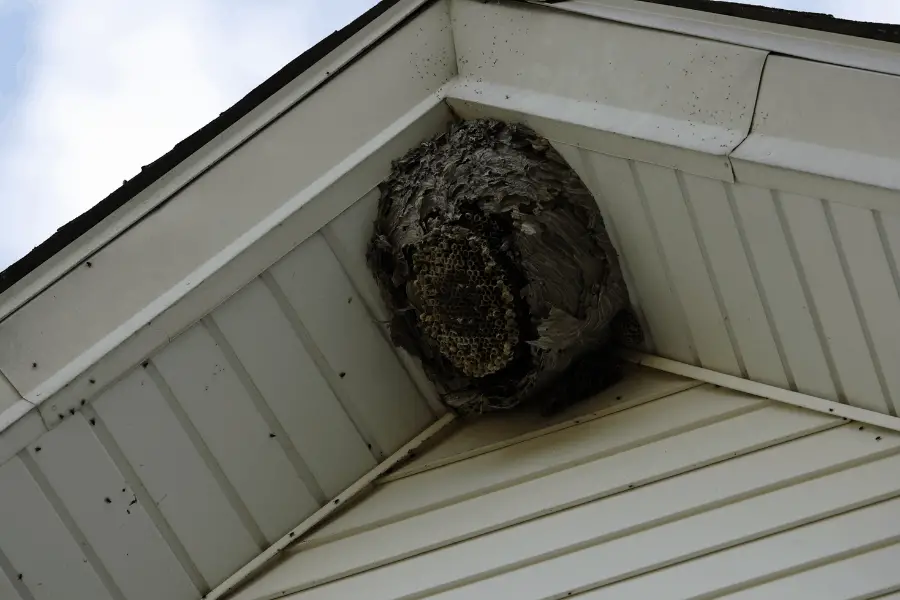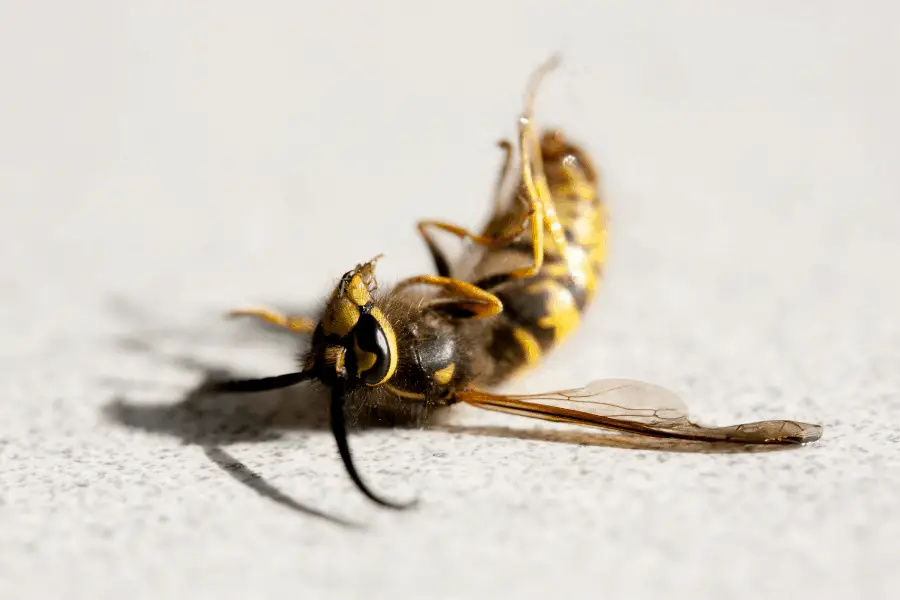
Some people claim that killing a wasp will attract more, but is this really the case? In order to find out, I’ve been putting traps around my house and seeing what happens.
Killing a wasp outside their nest will certainly alert the rest of the colony to the danger you pose. However, killing a lone wasp is unlikely to bring a swarm down upon you. Different species of wasps react differently to perceived dangers, so it’s important to be aware of your surrounding before you swat one.
The simple truth is, if you are near your home and you kill a wasp it could become quite dangerous for you quite quickly. That being said, it’s not always the case. So, I recommend you read on for more details.
Do wasps give off a scent when killed?
There is significant scientific evidence that wasps and bees give off certain pheromones when they are killed and start to decompose. This scent warns other social wasps that some form of danger is present. Unless the death occurs in the vicinity of the wasp nest, it’s unlikely that a dead wasp will attract others.
There have been several studies that have concluded that wasps communicate with each other, at least for certain things, through the sense of smell. Defense, for certain species, falls into this category.
Not surprisingly, the most common defense response for social wasps is to sting. However, some other species adopt a passive approach to common predators, such as ants, by building complex defensive structures into their nests.
Nevertheless, there are some species of solitary wasps that do not have a nest or colony to protect so their defensive behavior might be different. For these solitary wasps, it’s more about getting away from potential danger than stinging and defending themselves like social types tend to do.
The smell of dead wasps is not likely to attract other wasps because solitary types will avoid the odor. Social wasps, on the other hand, might be more attracted to it since they rely heavily on their sense of smell for a vast number of functions, including defense.
Even though, swatting a wasp around the picnic table isn’t going to lead to a scene from a bad horror movie,. Just have a quick look around to see if you can see a nest. If you can, then it’s best to leave that wasp alone.

Is it OK to kill wasps?
It is legally permitted to kill a wasp and to remove a wasp nest in your home or on your property. However, if the wasp doesn’t pose a structural or health risk, ecologically speaking it’s not advisable to kill them. Wasps carry out an important role in the ecosystem and their activities shouldn’t be interrupted if at all possible.
If you find a wasp colony in your roof or in a nearby tree, then removing that threat is perfectly understandable. In some cases, wasps can be as damaging to a house as termites.
Killing a single wasp in your home or yard won’t immediately put you in danger, but be aware that some species of these insects live in groups. If you take out one wasp, there’s a chance it will attract more of them in the nest is mere yards away.
Furthermore, some species are social and work together to protect their colonies from intruders. So if your child tries to use the flyswatter on another individual that comes too close, he or she might be in danger of being stung by several if they are buzzing around.
Just be cautious and if you are determined to remove this threat, target the entire nest rather than individuals.
What will attract wasps?
Wasps, like all animals, are attracted by a food source and a favorable environment to live in. Most species are omnivores, so we feast on anything from fruit to dead insects. Social wasps also look for secluded and well-protected areas to build nests, often in roofs or under the eaves.
Most wasps will not be especially attracted to a dead compatriot other than as a possible source of food. In the case that wasps are killed in the defense of their home, certain secretions may warn their fellows but it isn’t necessarily a bat signal to the survivors.
However, if you’re determined to kill off the population of wasps in your area, it is crucial that you target their entire nest and not just individual members. If a colony feels threatened by an intruder near its nest or food source, they will swarm out from said location with anger on their minds. The angrier they are the more aggressive they will become.
Will a wasp sting you for no reason?
A wasp will never attack for no reason. If they do sting it’s because they felt some sort of threat from the predator, namely you. If you have been stung it’s likely because you are too close to their nest or you have invertedly made a threatening gesture towards them. Once stung, it’s best to retreat as other wasps may take up arms against you as well.
A lot of people get stung by wasps every year around the globe, and often they feel that it was a case of mistaken identity. There is no evidence that I know of that says wasps randomly target humans.
The best advice when you get stung is to get away from the area as soon as possible, into your home or a car, and to seek medical assistance. Many people are allergic to wasps and bees, my sister being one of them.
Do Wasps remember you and hold grudges?
Although social animals, wasps certainly lack the mental faculties to experience the complex emotion of rancor. Some species of wasp can associate areas with food sources, so it may be possible that they ‘remember’ danger areas and thus are more likely to attack. This being said, wasps are unlikely to single one human out for punishment.
For those who believe a wasp is out to get them, it is more than likely that this is just the work of a very overactive imagination. I have found no evidence, beyond anecdotical, that suggests this is the case.
If you are constantly posing a danger to a wasp nest because it is constructed near to your home or on your daily route, then it may be possible that several different individual wasps will attack you.
Wasp attacks are very painful and can be dangerous to people with allergic reactions or those who are vulnerable to anaphylaxis, so it is advised that these individuals do not kill wasps when they get the chance. Doing so too close to a wasp nest could provoke a deadly response.
Will Wasps attack at night?
An attack from a wasp at night is extremely unlikely as they are diurnal creatures who retreat into their nests during the early evening until the dawn. In fact, the evening and very early morning are the best time to dispose of wasps as they are at the least active during these times.
If you have been stung by a wasp at night, then you are very fortunate as this is a rare thing. A lot of activity in a wasp colony after sundown is extremely rare and if you are experiencing this you should contact your local university or lab. Scientists will be very interested in this as it will be a rare evolution in the species.
What is possible is that you have been stung by a European hornet which can be active at night. These insects were brought to North America in 1840, but they vary from most wasps because can be nocturnal.
When dealing with any pest, the best strategy is to quickly and efficiently eliminate it. It works especially well during nighttime eradication efforts when we place a light in one spot and treat the nest from another.
European hornets are significantly less aggressive than bald-faced hornets and yellow jackets in general. Many hornets often nest in nests that are difficult to reach so it’s best to call a professional when these wasps build their homes.

Why are wasps so angry?
Wasps have a reputation of being angry as humans interact with them the most during periods of the year when food is scarce and people are surrounded by it. During the end of Summer and early Fall, new fertile queens who need sweet sustenance are being born. Worker wasps are particularly diligent in getting this vital food, making them offensive.
When humans, who have an abundance of sweet food during summer and early fall, meet wasps they try to protect their food. The wasps, who are on a mission, try to get to the food by using their sting on the perceived threats.
There is a lot of anger and pain in the air during this time. You can usually sense it by looking at wasps as they are always upset about something, whether being attacked or going after their next food source.
This is why it’s best to avoid any wasps you see and to target their nests whenever you find them near or in your home. Wasp nests not only hurt you when they sting, but their nests can eventually lead to expensive structural damage to your home.
The most important thing to remember is the wasps are just trying to do what they need to survive. If you don’t want them around, then make sure that your home is not a place they’re likely to forage or nest and avoid any contact with their stingers.
So, killing a wasp won’t immediately bring down vengeance upon you from the rest of the colony, but it does have its risks if you do it too close to their nest.

